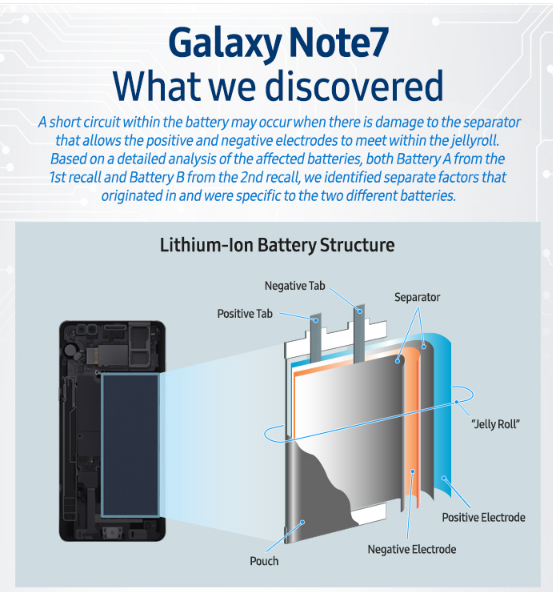Samsung blames Galaxy Note 7 fires on two separate battery faults

Most of us have been really waiting for Samsung to announce the cause of the Galaxy Note 7 incidents. Cases of the Note 7 devices overheating and catching fire was such a huge story in September last year, forcing Samsung to make a global recall of millions of devices. The company has now blamed the lithium-ion batteries for causing the fire.
The company made this announcement at a press conference held in Seoul, Korea on Monday. DJ Koh, President of Mobile Communications Business, Samsung Electronics, shared detailed results of the investigation and expressed his sincere apology and gratitude to Galaxy Note 7 customers, mobile operators, retail and distribution partners and business partners.
To find the cause of the Galaxy Note 7 incidents, Samsung says it examined every aspect of the Galaxy Note 7, including hardware, software and related processes over the past several months. Internal and independent investigations had “concluded that batteries were found to be the cause of the Note 7 incidents”. Mr. DJ Koh also said exhaustive tests on thousands of the Galaxy Note 7 devices had ruled out any problems with the hardware or software.
So what went wrong in what was the largest-ever recall from a mobile manufacturing company?
Samsung says errors both in design and manufacturing affected batteries by two different manufacturers. Samsung had used two separate suppliers for the Galaxy Note 7 – Samsung SDI, which is a sister company in Samsung group, and Amperex Technology Ltd (ATL). Error in both the design and manufacturing affected the batteries from these two manufacturers.
Read: Samsung already feeling the effects of the Galaxy Note7 Recall And Sales Halt

The problem, Samsung says was centered on insufficient insulation material within the battery and a design that did not give enough room to safely accommodate the batteries’ electrodes. For the original battery, Samsung says the casing was too small, causing it to short-circuit and explode. The battery was replaced with a different manufacturing defect but it led to the same results as the original one.
Samsung said it hopes that this case will serve as an opportunity to improve the safety of lithium-ion batteries not only for the company but for the entire industry, and will actively share the lessons learned to contribute toward improved safety standards.
Based on what the company learned from the investigation, Samsung says it implemented a broad range of internal quality and safety processes to further enhance product safety including additional protocols such as the multi-layer safety measures and 8-Point Battery Safety Check.
“Today, more than ever, we are committed to earning the trust of our customers through innovation that redefines what is possible in safety, and as a gateway to unlimited possibilities and incredible new experiences.” Mr. DJ Koh. The company also said it is taking responsibility for its failure to ultimately design and verify the issues arising out of battery design and manufacturing.
After the reports of the Galaxy Note 7 devices exploding, Samsung was forced to recall more than 2.5 million devices in September. The situation got worse when replacement phones with batteries from a different manufacturer experienced a similar problem. Samsung was then forced to suspend the production of the Galaxy Note 7 in October, a move which is said to have cost the company an estimated $5.3bn in lost profits.



